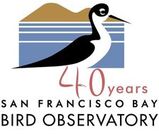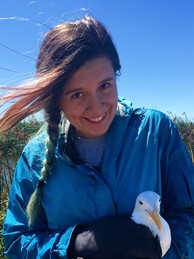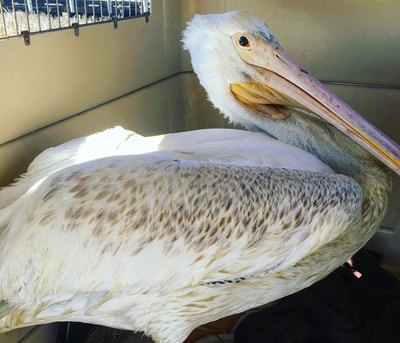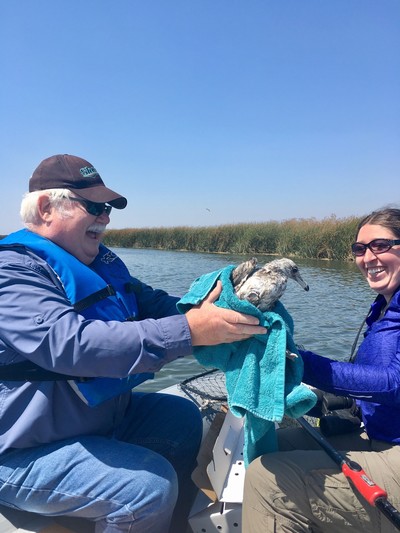|
By Waterbird Lead Biologist Victoria Heyse
several smaller outbreaks, with the last outbreak occurring in 2004.The Clostridium botulinum toxin affects birds worldwide and spreads naturally in soils under suitable conditions (warm, brackish, shallow water, with low dissolved oxygen concentrations). It is ingested by birds either directly or indirectly (through invertebrates). By removing decomposing matter from the sloughs, we are helping to prevent a disease outbreak by reducing the “fuel” it needs to move through the system. It is also important to have eyes in the slough so that the appropriate actions can be taken ASAP (notifying USFWS, mobilizing more people, conducting more frequent surveys) if an outbreak is detected. So far this year, we’ve removed over twenty Striped Bass and close to ten dead birds. We’ve also captured and transported close to a dozen sick or injured birds to the Wildlife Center of Silicon Valley for care. While nearly all of these sick or injured birds have been immature gulls, some unusual recent captures included a Mallard and an American White Pelican with broken wings.
When capturing live birds, we make use of towels in order to safely handle the birds. If you’re interested in supporting this project, but can’t come out on a boat survey, we’re currently looking for towel donations. We could use a variety of sizes ranging from large dish towels (approx. 20in x 30in) to any size bath or beach towel. Cotton or microfiber towels are preferred over linen towels. Please bring any towel donations to our office in Milpitas. Used towels are great as long as they’re dropped off clean! If you have any questions, are interested in volunteering for boat surveys, or would like to donate a towel, please contact Victoria Heyse at [email protected].
0 Comments
Your comment will be posted after it is approved.
Leave a Reply. |
WingbeatWingbeat is a blog where you can find the most recent stories about our science and outreach work. We'll also share guest posts from volunteers, donors, partners, and others in the avian science and conservation world. To be a guest writer, please contact [email protected]. Archives
July 2024
Categories
All
|
San Francisco Bay Bird Observatory ● 524 Valley Way, Milpitas, CA 95035 ● 408-946-6548 ● [email protected]




 RSS Feed
RSS Feed